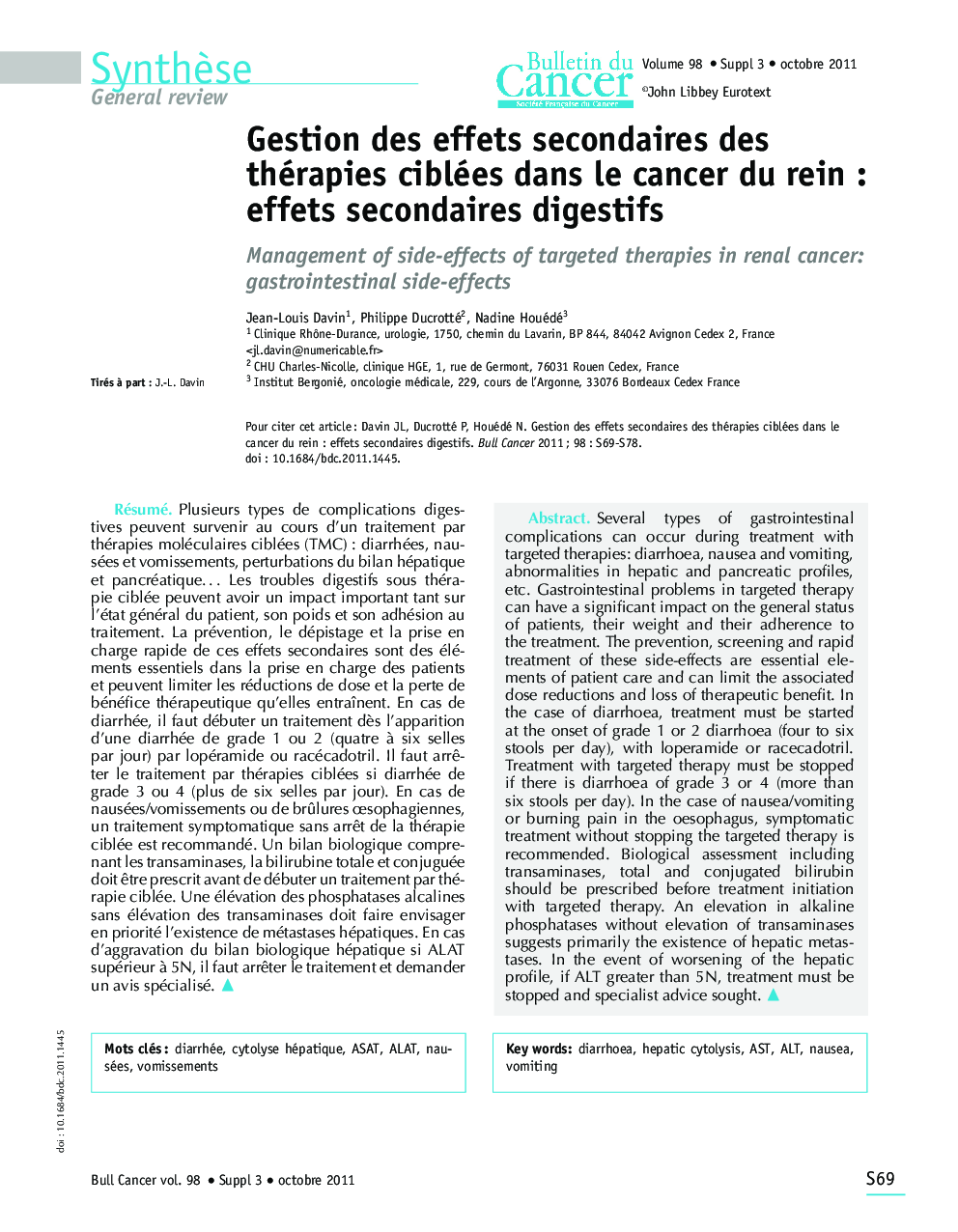| Article ID | Journal | Published Year | Pages | File Type |
|---|---|---|---|---|
| 3979326 | Bulletin du Cancer | 2011 | 10 Pages |
Abstract
Several types of gastrointestinal complications can occur during treatment with targeted therapies: diarrhoea, nausea and vomiting, abnormalities in hepatic and pancreatic profiles, etc. Gastrointestinal problems in targeted therapy can have a significant impact on the general status of patients, their weight and their adherence to the treatment. The prevention, screening and rapid treatment of these side-effects are essential elements of patient care and can limit the associated dose reductions and loss of therapeutic benefit. In the case of diarrhoea, treatment must be started at the onset of grade 1 or 2 diarrhoea (four to six stools per day), with loperamide or racecadotril. Treatment with targeted therapy must be stopped if there is diarrhoea of grade 3 or 4 (more than six stools per day). In the case of nausea/vomiting or burning pain in the oesophagus, symptomatic treatment without stopping the targeted therapy is recommended. Biological assessment including transaminases, total and conjugated bilirubin should be prescribed before treatment initiation with targeted therapy. An elevation in alkaline phosphatases without elevation of transaminases suggests primarily the existence of hepatic metastases. In the event of worsening of the hepatic profile, if ALT greater than 5N, treatment must be stopped and specialist advice sought.
Related Topics
Health Sciences
Medicine and Dentistry
Oncology
Authors
Jean-Louis Davin, Philippe Ducrotté, Nadine Houédé,
